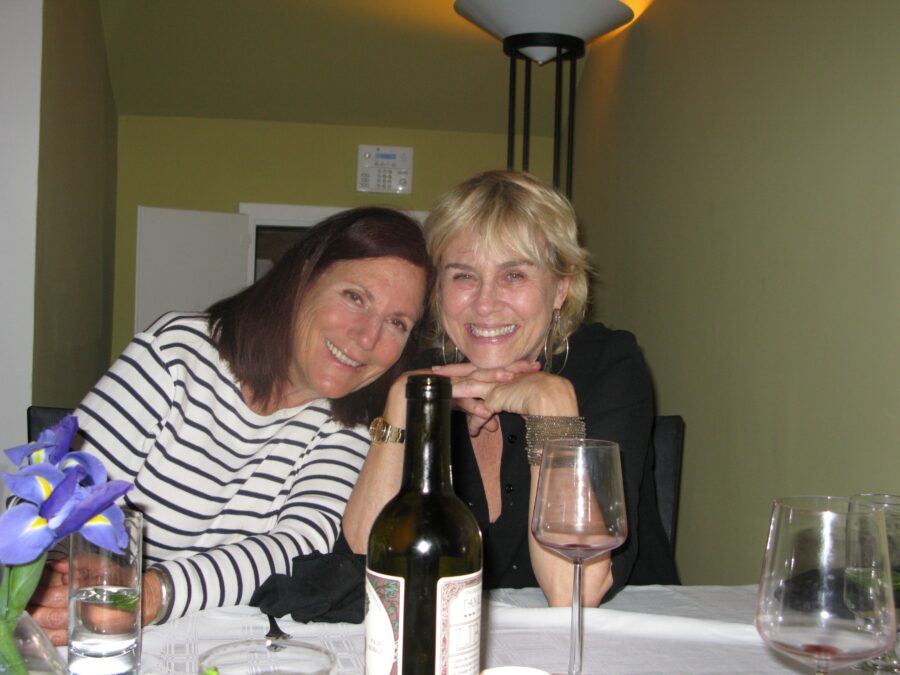We are like islands in
the sea, separate on the surface but connected in the deep.
– – William James
In 1975, my second marriage fell apart. Technically my husband left me, but when he walked out the door, I realized that I had made it happen. He had retreated into himself when I said four potent words, “Show up or leave.” He’d had one foot out the door for a long time and the moment I gave him a hall pass, he was out of there. I sobbed and felt betrayed, but when I look back, I wasn’t crying because of the loss of him. He had become a pain in the ass and I was happier when I was away from him. I was crying because I was afraid of being alone, of feeling lonely and disconnected.
The first night after he left, I couldn’t sleep. It wasn’t because missed him. I didn’t. It wasn’t because the house had its creaks and groans. They didn’t scare me. It was the crippling silence, a sense that I was the only person in the world, that if I disappeared, no one would notice. I walked from room to room. There were physical gaps, empty spaces where his things had been. That was sad but the emotional gaps were far worse, like deadly abysses and I was afraid of falling in. I felt untethered, flailing around, upset by the absence. I felt hopelessly lonely and insecure. No roots. No one to talk to. I was alone in a standing up free fall and when I put out feelers, there was nothing or no one to attach to. Like Alice in Wonderland who fell down the rabbit hole, I didn’t know where I’d land or if I would land.
We can do something about feeling
alone. We can see friends, talk on the phone, watch movies and get lost in
creative projects. But being disconnected is another story. It feels like we’re
stuck and it can throw us off balance. On one of my trips to research the healers in the Philippines, the late Spalding Gray, a famous writer/monologist joined me there in 1992. He had heard of the healers, he was in a severe depression and he wanted to see if they could help him. Over a beer one night, he told me about his recent attempt to write an autobiographical book. He kept writing pages and throwing them into a box. When he reached two thousand pages and the box was overflowing, he stopped and wrote a monologue about writing his memoir that he called “Monster in a Box.”
During a photo shoot to promote it, the photographer brought in a huge wooden box and asked Spalding to stand on it for a photo. There was a stairway beside it and Spalding became anxious as he
climbed. With each step, he became more fearful and when he reached the top, he dropped to his hands and knees. He couldn’t stand up. He tried, he looked straight ahead, but he kept teetering and he was back on his hands and knees again.
“What’s wrong?” the photographer asked him.
“I feel disconnected,” he said. “I keep losing my balance. I need a mirror to look into so I know there’s someone there.”
The photographer’s assistant brought in a standing mirror. When Spalding looked at his reflection he was able to stand up on the box for the photo.
I think it’s important here to discuss the difference between connection and clinginess. Hanging on to someone for dear life is powered by a fear that they will abandon you and leave you alone. On the other hand, being one with yourself is powered by the faith that we are all united.
Yesterday, families and friends gathered to celebrate Thanksgiving. It was a joyous occasion for some people but for others, not so much. You can feel alone in a crowded room. You can forget the
meaning of the celebration. I was telling a friend about the lavish
Thanksgiving meal I had. He smiled and said, “I ate at Taco Bell but I was thankful.” He felt more in sync with himself than some people who spent the day eating with their families.
We feel insubstantial when we’re disconnected to everything and everyone, including ourselves. The number of suicides in young people is rising. Have you ever seen a group of teenagers sitting in a restaurant, staring at their phones? They may be texting people who are somewhere else or they may be texting the person beside them. They don’t look in each other’s eyes and see the love. They don’t get to read someone else’s body language and understand where they’re coming from. These things can lead to depression.
We are meant to unite with each other, the reason there is more than one of us. The more we see other human beings as a way to be with ourselves, the safer we feel. The more we have faith in other people, the more we see reality. In this way, we can be bonded, even when someone dies. Back in the late eighties, I lost a dear friend to AIDS. He had introduced me to Marianne Williamson who invited me to visit her. When I told her I was grieving the loss of my friend and I felt disconnected, she said, “There is no disconnection. You can start a whole new relationship with him now.”
New York Times bestselling author and motivational speaker, Brené Brown says, “Connection is why we’re here. We are hardwired to connect with others. It’s what gives purpose and meaning to our lives, and without it, there is suffering.”


Recent Comments